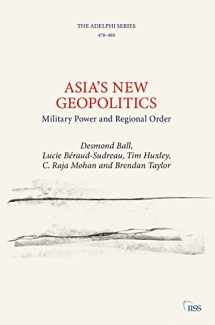
Asia’s New Geopolitics: Military Power and Regional Order (Adelphi series)
Book details
Summary
Description
Intensifying geopolitical rivalries, rising defence spending and the proliferation of the latest military technology across Asia suggest that the region is set for a prolonged period of strategic contestation. None of the three competing visions for the future of Asian order – a US-led ‘Free and Open Indo-Pacific’, a Chinese-centred order, or the ASEAN-inspired ‘Indo-Pacific Outlook’ – is likely to prevail in the short to medium term. In the absence of a new framework, the risk of open conflict is heightened, and along with it the need for effective mechanisms to maintain peace and stability.
As Asia’s leaders seek to rebuild their economies and societies in the wake of COVID-19, they would do well to reflect upon the lessons offered by the pandemic and their applicability in the strategic realm. The societies that have navigated the crisis most effectively have been able to do so by putting in place stringent protective measures. Crisis-management and -avoidance mechanisms – and even, in the longer term, wider arms control – can be seen as the strategic equivalent of such measures, and as such they should be pursued with urgency in Asia to reduce the risks of an even greater calamity.


We would LOVE it if you could help us and other readers by reviewing the book
Book review



